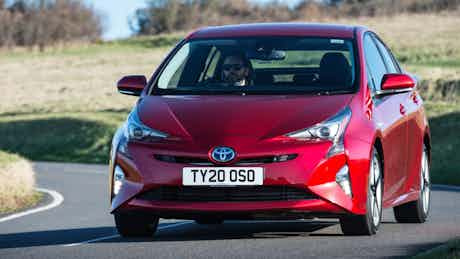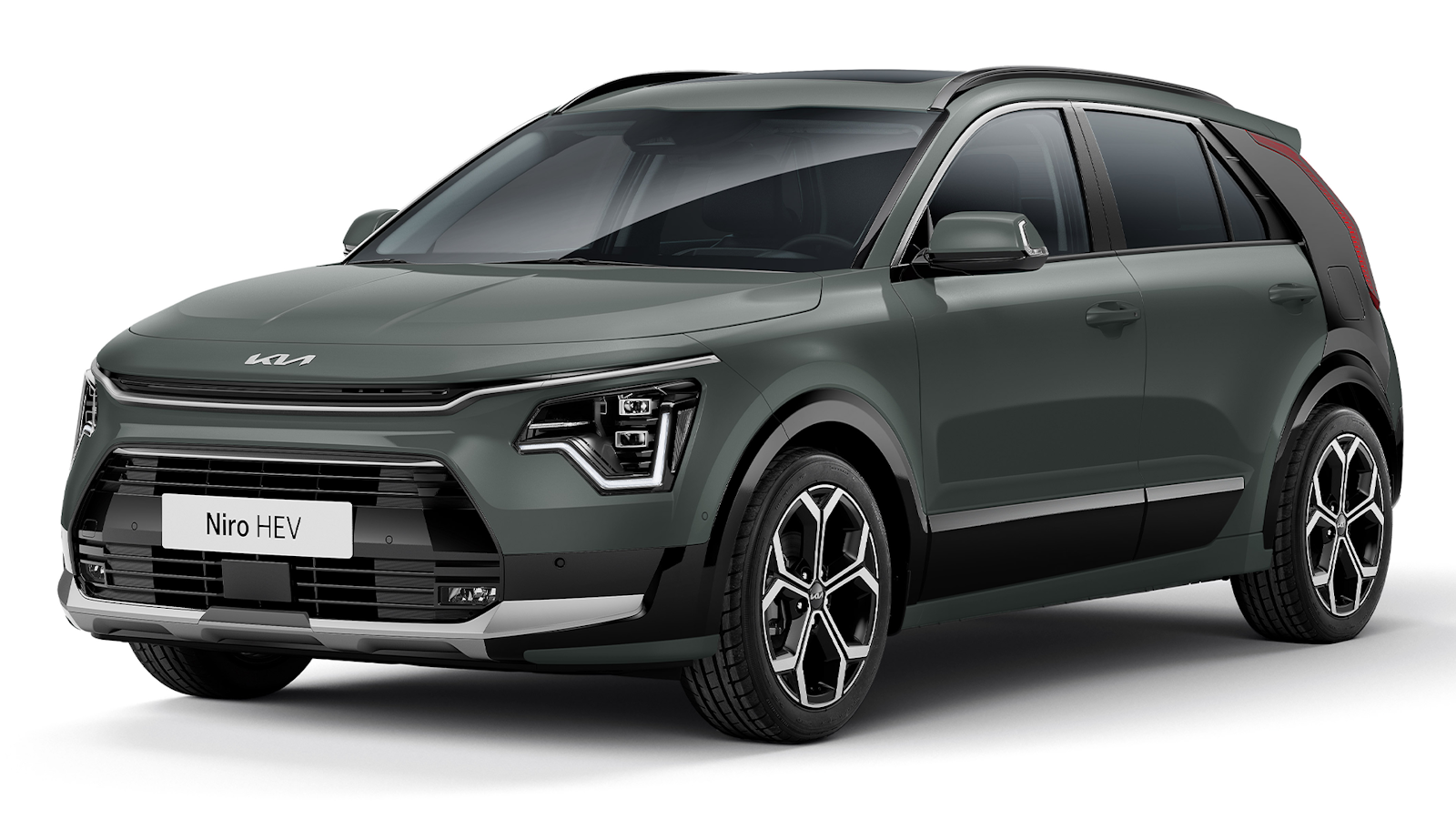What is a self-charging hybrid?
September 13, 2022 by carwow staff

The term ‘self-charging hybrid’ has entered common parlance, but what does it mean?
You know you’ve got a really effective advertising campaign on your hands when a phrase popularised by billboards enters the common language, but that’s exactly what happened with ‘self-charging hybrids’ – also known as a conventional hybrid, or an HEV, short for hybrid electric vehicle.
Becoming well known thanks to advertising campaigns, it’s best if we pick apart the words in the phrase ‘self-charging hybrid’.
The ‘hybrid’ aspect means the car has both a conventional engine, and an electric motor. The engine is powered by petrol, while the motor is powered by electricity stored and delivered by a battery. The petrol engine can power the car on its own, the electric motor can power the car on its own, or they can combine together to power the car at the same time.

But what does a ‘self-charging’ hybrid mean?
The words ‘self-charging’ are used to denote that there is no need to plug the car into a recharging point to replenish the batteries, as can be done with a plug-in hybrid (PHEV).
Instead, the battery for the electric motor is recharged by two methods: first, the engine can act like a generator, converting petrol into electricity to replenish the battery; energy from the car slowing is converted into electricity and sent to the battery – something known as regenerative braking.
What’s the difference between a self-charging and a plug-in hybrid?
A plug-in hybrid is able to charge its batteries both via regenerative braking, and by using the engine as a generator.
Where a plug-in hybrid differs is that its batteries can also be recharged by plugging the car into a recharging point – something a self-charging hybrid is unable to do.
The phrase self-charging hybrid can therefore also be understood to mean ‘non-plug-in hybrid’.

Plug-in hybrids also have much bigger batteries than self-charging hybrids. As a result, they can travel further, and at higher speeds on battery power alone, than self-charging hybrids.
It’s also worth pointing out that another type of hybrid, known as a range-extender hybrid (or REx for short), could be considered self-charging. A REx is essentially an electric car with its own on-board generator: you charge it up like a conventional EV most of the time, with a (small) petrol engine charging the battery if it gets low – though the battery never powers the wheels directly.
What’s the difference between a self-charging and a ‘mild’ hybrid?
While self-charging hybrids have smaller batteries than plug-in hybrids, mild hybrids have tiny batteries that cannot power the car by themselves at all, instead helping the car get moving from a standstill, or allowing it to cut the engine when coasting down a hill, for example. For these reasons, it’s best to think of a mild hybrid as a conventional petrol or diesel car with a sophisticated stop-start system.
Which car companies offer self-charging hybrids?
Self-charging hybrids are offered by several car makers, with the first mass-produced hybrid being the Toyota Prius, which arrived in 2001. Today, everyone from Toyota and Lexus, to Honda, Renault and Ford offers a self-charging hybrid.
Self-charging hybrids: pros
Self-charging hybrids tend to be significantly less expensive than comparable plug-in hybrids. As an example, the Kia Niro conventional hybrid starts at £27,745 (as of September 2022), while the plug-in hybrid model is available from £33,525 – though see how much you can save by heading over to our Niro deals.
Self-charging hybrids are also good in town, where stop-start traffic will see their batteries recoup a decent amount of energy from regenerative braking, and typically low speeds mean they can run on battery power alone pretty frequently. This, in turn, can help reduce urban emissions.

Self-charging hybrids also tend to have lower carbon dioxide emissions than comparable petrol cars, making them more attractive from a company car perspective (though a PHEV is even better in this respect). They also tend to use less fuel than an equivalent petrol car – though a comparable diesel model would typically be more efficient.
But while not being able to plug in can be seen as something of a disadvantage for a self-charging hybrid, it is also arguably an advantage: the larger batteries PHEVs have add weight (and therefore reduce efficiency), meaning plug-in hybrids really need to be recharged frequently if they are to have the best use made of them.
Self-charging hybrids: cons
Plug-in hybrids can go further and faster on battery power alone than self-charging hybrids, with modern PHEVs able to cover around 40 miles on a single charge, and at speeds of up to 80mph or so.
A self-charging hybrid, by comparison, might be able to cover a mile or two in electric mode, and only at speeds below, say, 40mph. A modern diesel engine will also typically have comparable (or even lower) carbon dioxide emissions, while also returning better fuel economy.
Self-charging hybrids also often come with what’s known as a CVT (short for continuously variable transmission) gearbox. These have improved over the years, but they tend to send the revs soaring when heavy acceleration is required.
Plus, while plug-in hybrids can be designed for economy or performance, self-charging hybrids tend to be build with fuel efficiency in mind, so keen drivers may find they don’t offer quite as much involvement as other types of car.
Should I buy a self-charging hybrid?
Hopefully the above information should help you make your decision, but a self-charging hybrid can make a good choice for people wanting to dip their toe into electrified motoring, without making the switch to a full electric car.
Self-charging hybrids can also suit people who do a lot of town driving, a) because they are often able to run in electric-only mode often, and b) because urban living often brings with it a lack of driveways, meaning recharging an electric car or plug-in hybrid can be problematic.
Change cars online with carwow
Looking for an easy way to change your car? Then carwow is the place to go. You can sell your car online for a great price, and get the best deals on a new one. All through our network of trusted dealers and all from the comfort of your home. Tap the button below to get started today.















